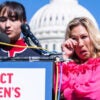The Obama Administration’s engagement policy suffered two major defeats in recent days due to the collapse of negotiations on Iran’s nuclear program, which followed the collapse of Lebanon’s pro-Western government two weeks ago.
The diplomatic dead end over Iran’s nuclear program has received the lion’s share of Western press attention. Although expectations had been low, Iran’s inflexible diplomacy sorely disappointed the few observers who still harbor hopes that a diplomatic process can be designed to resolve the simmering nuclear standoff. Tehran refused to negotiate unless all sanctions imposed on Iran were first lifted and the P5+1 recognized Iran’s right to develop a wide range of nuclear technologies, including uranium enrichment. These unacceptable preconditions for talks were appropriately rejected, and there was no public announcement of another round of talks.
While Tehran has refused to engage on the nuclear issue, it has engaged with a vengeance in Lebanon. Iran’s ally Hezbollah, a radical Shia movement with a long history of terrorism, brought down the government of pro-Western Prime Minister Saad Hariri on January 12 while he was in Washington to meet with President Obama. The proximate cause was a bitter dispute over the legitimacy of the pending indictments to be issued by the U.N.-authorized Special Tribunal for Lebanon (STL), which is expected to charge Hezbollah officials with responsibility for the 2005 assassination of Lebanese Prime Minister Rafik Hariri, Saad’s father.
In the aftermath of the assassination, the pro-Western “March 14” coalition was elected to power over the Hezbollah-led “March 8” bloc. But Hezbollah and its foreign allies, Iran and Syria, are suspected of assassinating nearly a dozen politicians or public figures aligned with March 14 in a ruthless effort to intimidate Lebanon’s leaders. Hezbollah is determined to prevent Lebanon’s government from cooperating with the STL investigation, which threatens to dispel the myth that Hezbollah uses force only to protect Lebanese from Israel and expose Hezbollah’s terrorist attacks against Lebanon’s highest officials.
Today, Hezbollah succeeded in securing the nomination of its preferred candidate, telecommunications tycoon Najib Mikati, as the Prime Minister of a new government. If Mikati can consolidate enough support among Lebanon’s traumatized political leaders, his government will represent a major shift for Lebanon away from a Western orientation and bring it deeper under the influence of Iran and Syria.
The creation of a subservient government will also strengthen Hezbollah’s chokehold over Lebanese politics and enable it to freely prepare for another round of fighting with Israel similar to the 2006 war that it triggered with cross-border attacks. Iran has provided Hezbollah with more than 40,000 rockets to bombard Israel, in addition to other arms, training, and ideological support. While the Obama Administration remains wedded to an ill-conceived diplomatic engagement of a recalcitrant Iran on the nuclear issue, Tehran feels free to expand its sphere of influence in Lebanon and make preparations for a military engagement with Israel.
































4 Replies to “Iran Disengages on Nuclear Talks, but Not So Much in Lebanon”